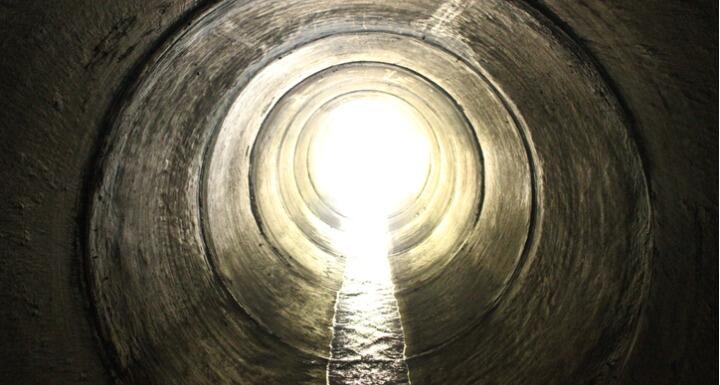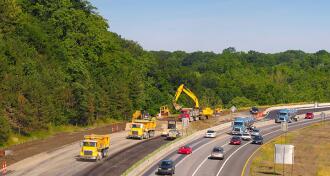Extensive changes to North Carolina's stormwater runoff statute went into effect on September 16,2021 as part of Session Law 2021-158.
The Stormwater Program amendments are embedded in an environmental omnibus bill entitled "An Act to Make Various Changes to the Natural, Environmental, and Cultural Resources Laws of The State, As Recommended by the Departments of Environmental Quality and Natural and Cultural Resources" (the "Act"). Introduced in March as Senate Bill 389, the Act was ratified by the General Assembly on September 8, 2021, and signed by Governor Roy Cooper eight days later.
The Department of Environmental Quality's (DEQ) primary method to control stormwater discharges is to implement best management practices tailored to on-site activities aimed at reducing pollutant sources. DEQ's Division of Energy, Mineral and Land Resources (DEMLR) implements and enforces various stormwater permitting programs in North Carolina meant for industrial, municipal, and development activities. DEMLR's overall Stormwater Permitting Program is a compendium of statewide stormwater control policies, strategies, and rules designed to protect surface water quality from the adverse effects of runoff.
Under the Post-Construction Stormwater Program, DEMLR issues stormwater permits and enforces stormwater management for development in a 20-county coastal area in eastern North Carolina and other pockets of the State. Low-density stormwater permits are perpetual and do not require engineered stormwater control measures; rather, they limit built-upon area (BUA, also known as impervious surface) to a certain percentage of the entire development, often with per-lot limits. High-density permits are valid for eight years and require renewal because they prescribe engineered stormwater control measures with specific operation and maintenance requirements.
Section 4 of the Act amends the Stormwater Management Program under § 143-214.7 of the North Carolina General Statutes in several ways:
1. Annual Certifications
New stormwater permits and those to be reissued by transfer, modification, or renewal will require the permittee to submit an annual certification of the project's conformance with permit conditions. DEMLR can require only the permittee or its designee to submit the annual certification and will need to update its online system to provide for electronic submission of the certification. The annual compliance certification is not considered "a new or increased stormwater control," which the statute explicitly prohibits from applying to preexisting development.
2. Permit Transfers
Several provisions of the Act modify the stormwater permit transfer process. Under normal circumstances, a permittee applies for a permit transfer shortly after the underlying property has been conveyed to a successor owner. However, that does not always occur.
The Act broadens DEMLR's authority to transfer a stormwater permit without the consent of the permittee or successor owner by allowing it to initiate a transfer of a permit under a wider set of circumstances. The Act authorizes DEMLR to require an application for permit transfer to be submitted when:
- the permittee is (1) a deceased natural person; (2) a business association that has dissolved, has completed the winding up of the business and does not have a successor-in-interest to the permit; (3) a person or entity lawfully and finally divested of the title to the property through foreclosure, bankruptcy, or other legal proceedings; or, (4) a person or entity who has sold the property,
and
- the successor-owner of the property is (1) the person or entity holding title; (2) the claimant of the right to engage in the permitted activity; (3) an association as defined by statute; or (4) any other natural person, group of persons, or entity deemed appropriate by DEMLR to operate and maintain the permit.
Under the Act, the permittee and the successor-owner will be required to jointly submit an application to transfer a stormwater permit unless the permittee is deceased or a dissolved business association or if the successor-owner requests DEMLR to accept the application without the signature of the permittee.
If the permit transfer conditions are met on or after July 1, 2021, DEMLR can require the joint application to be submitted within 90 days. If the permit transfer conditions were met before July 1, 2021, DEMLR can request a transfer application after confirming transfer conditions and can require it to be submitted within 180 days of the request. If the conditions on the property do not conform to the approved plans and permit conditions, the permit transfer application will need to include an action plan with a schedule for achieving compliance within one calendar year. This may also necessitate an application for permit modification. Transfer applications for low-density permits may include a request for an updated BUA limit under new conditions addressed below.
If the permittee has sold the property or if the permittee is the declarant of a condominium or a planned community and the successor-owner is an association, only the permittee is responsible for the action plan and compliance schedule and for bringing the property into substantial compliance with the approved plans and permit conditions before DEMLR can transfer the permit. DEMLR cannot impose new or different design standards on a project without the prior express consent of the successor-owner of the property.
3. Built Upon Area Limitation Overages
A new permit modification request mechanism is available for low-density stormwater permits that have exceeded the permitted BUA limitations to bring those projects into compliance with the existing or modified BUA limit. A permittee whose low-density permit was issued before January 1, 2017, can apply for a permit modification to limit BUA to the existing amount which exceeds the permitted BUA limit. The Act specifies updated BUA limits for modification applications based on whether the current BUA is less than or equal to 110% of the maximum allowable BUA under the permit. Compliance with an updated BUA limit will need to be reported under the new annual certification requirement. Projects, where BUA exceeds 110% of the maximum allowable BUA under the permit, must mitigate the impacts of the overage by adding one or more stormwater control measures on the property before DEMLR can issue an updated permit.
4. Grandfathering Low-Density Stormwater Certifications
For older developments approved under the fledgling stormwater program, stormwater certifications and approvals issued before September 1, 1995, will be revoked as of January 1, 2022. The current BUA will be considered an existing development under other provisions in the statute. This treatment will require any future development on such projects or sites to comply with the statute and any recorded deed restrictions.
5. Civil Penalties
Finally, the Act expands § 143-215.6A to allow DEQ to assess a civil penalty of up to $25,000 for violations of any portion of § 143-214.7. Civil penalties previously were limited to a portion of the statute that was repealed in 2013.
What May Be Ahead?
The Act's most significant impacts likely will be felt by developers of residential communities still named as permittees and by community associations and their property management companies that oversee existing developments but are not the current permittee. The provisions that address BUA overages of low-density permit limits offer the greatest opportunity to solve a conundrum frequently plaguing communities—situations where homeowners add improvements, such as pools, patios, and hardscape, that exceed the BUA limits of the permit, and DEMLR refuses to transfer the permit for noncompliance even though neither the permittee nor the association participated in development activities that resulted in the overage. The upside is that stalled permit transfers up and down the coast may play out to everyone's benefit if done in a cooperative manner. But drainage areas that are overdeveloped and already subject to high water tables prone to flooding in rain events may not be able to handle leaving the excess BUA in place or support additional development. Time and the weather will tell.









